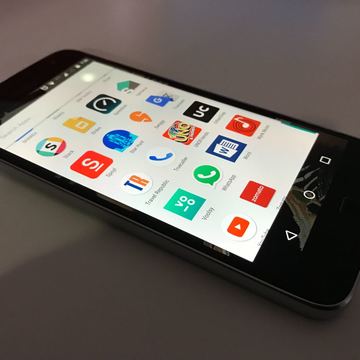 Over 2.5 million people in the United States are involved in car accidents every year, and out of these cases, 1.6 million have a cell phone involved. Cell phones are extremely distracting and encourage people to take their eyes of the road. In fact, using a cell phone is six times more likely to get someone into a car accident than being drunk.
Over 2.5 million people in the United States are involved in car accidents every year, and out of these cases, 1.6 million have a cell phone involved. Cell phones are extremely distracting and encourage people to take their eyes of the road. In fact, using a cell phone is six times more likely to get someone into a car accident than being drunk.
Because of the increasing dangers of texting, local authorities have been cracking down on the law. More people are being pulled over and given tickets for texting while driving.
However, what if you’re innocent? Here is some advice on the law and what you can do if you were wrongly accused of texting and driving.
The Offense
Just like most traffic laws, texting while driving differs from state to state and from locality to locality. However, 47 states, DC, Puerto Rico, Guam, and the US Virgin Islands ban text messages for all drivers. These laws prohibit the writing, sending, or reading of text messages as well as other similar messages such as emails, instant messages, Whatsapp messages, or any other Internet-based message while driving.
In some states, the texting while driving law is considered a primary offense, which means that a police officer can pull someone over and write up a texting while driving ticket even if they don’t observe any other traffic violations. However, in other states, texting while driving is a secondary offense, which means that police can only city people for texting while driving if they observe another traffic violation.
The Punishment
The punishment also varies by jurisdiction but usually include fines and potentially points against the offender’s driver’s license. In some states, repeat offenders can even face jail time.
Should You Fight the Offense?
While most people simply pay the fine, many drivers that have fought their charge have won.
The texting while driving law is not only new, but a gray area. It is hard to prove beyond a reasonable doubt that you were using your phone to text. Instead, some people have been able to provide evidence that they were actually using their maps rather than texting or sending messages. Call and text records are extremely handy for proving this fact.
Ultimately, you should reach out to an experienced traffic lawyer to help with your case. Since the laws vary from state-to-state, a local lawyer can evaluate your case in great detail and ensure you are protected from false accusations.
How to Avoid Further Offenses
The number one way to avoid texting while driving offenses is to stay off your phone. Exercise good driving safety tips by eliminating the temptation of using it. A good practice is to keep your phone turned off in the glovebox or even in the back of your trunk. Therefore, if a police officer pulls you over, he or she has no reason to charge you with a texting and driving offense.
When you exercise extra caution on the roads, you can avoid wrong accusations. Be safe and be smart when you drive.
